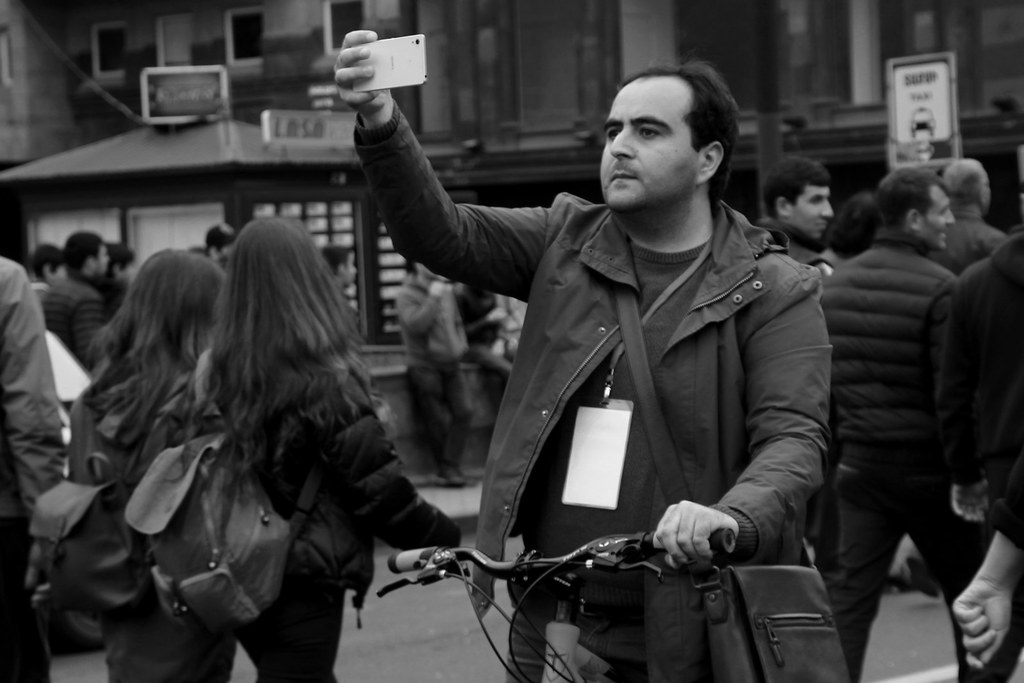During the days of the coronavirus, Robert, while interacting with people on the street, realized that journalists have a lot to explain and tell people.
This is a new situation when it is necessary to convey to the reader some knowledge about the infection, to create an atmosphere of trust, and then only to talk about the events, the problems of the state and what to do.
Without this foundation, it turns out that people do not understand, trust and try to comprehend the text. And this opens up various myths and false information, which not only does not benefit a person but often damages their mental health.
On the other hand, the reader begins to research the topic on their own, to find various data and stories from foreign media, because they feel safer with information.
What has the coronavirus changed in the work of a journalist when dealing with official statistics and are rarely talking to characters and professionals? Is there no danger of losing the audience?
In a sense, the coronavirus has disarmed my journalists. The usual environment that would allow you to shoot a story with the participation of heroes, to get luxurious shots, to make an impact, to capture a voice and noise in high-quality, does not exist today.
Remote work, even if the other person is infected with the coronavirus, prevents the story from being presented more directly and well.
In the first days of declaring a state of emergency, there were strict restrictions for the media, but fortunately, that period was short. And today, in addition to the official statistics, the news also contains information received from the media’s own sources.
In other words, the field is not closed, and there have been many cases when the media first published the existence of a coronavirus outbreak in an area, and then there was an official confirmation or denial.
Today, the media is widely integrated into social networks, the reader is in direct contact not only with the media but also with the journalist.
Today, nothing can threaten the relationship between a journalist and the people, if the relationship is really honest.
Journalists are at risk, how can they find the golden mean for doing their work, communicate with doctors and infected people?
Let my training not seem like military patriotism or exaggeration, but our journalists are used to working with a sense of danger.
Years ago, when a journalist went to cover protests, they realized that at least one swing of a baton could hit their head when war was raging on the front lines, and there was no guarantee that they would be among those returning.
Today, more than ever, we have no right to give up our mission, especially since these days hundreds of doctors teach us all a great lesson in the profession and the title.
Heads of state compare the coronavirus with war.
There are simple rules in the trench that make it less likely that you will be hurt by the enemy: it is forbidden to be without a helmet, armor, you should not raise your head to the level of visibility of the enemy, you should not smoke in the dark, you should keep your distance.
Coronavirus coverage is very similar to this description.
There are protective measures and rules, the observance and maintenance of which will allow the journalist to do their job safely. We must always be accompanied by the feeling of doing something important.
What to emphasize in the materials on the topic of coronavirus, what can a journalist do in this general struggle?
My journalists and I are learning to live and work in parallel with the coronavirus. Perhaps being infected with the coronavirus will allow a journalist to understand the suffering of patients, the difficult family situation, and make them look at the issue from a different perspective, without compromising the principle of non-harm.
But I think it is not necessary to be infected in order to understand and separate the primary from the secondary.
My journalists must be guided by the principles of not harming, even if the opposite is very tempting.
The epidemic is getting worse day by day, what could the journalists have done that they did not do?
The spread of the epidemic has not been prevented by the world’s most powerful states, and the big culprits must be sought in governments.
When I, as a journalist, publish something that endangers public health, for example, I spread the call not to wear a mask, then, yes, I am also guilty of spreading the epidemic.
I do not understand the interest or motivation of such a media outlet.
Even without that, there are unjustified myths and suspicions among the public, and it is not acceptable to feed them with new conspiracy theories. And who will be responsible for the death of a person who refused to wear a mask after reading the publication of the media outlet, became infected, or infected his surroundings? Where is the principle of not harming?
Political competition can sometimes blind people and put public health at risk, but journalists must be prepared to keep their senses filtering, without giving way to backwardness or unprofessional comments.
Don’t you think that the epidemic is a good opportunity to reconsider journalistic priorities? If our only job is to inform, then in many cases we are late.
I agree that the process of transforming journalists is too late, and it has its reasons. We see that the journalist’s work in compiling news is decreasing.
In other words, I don’t see the journalist’s job when he has to publish and republish the official’s post in the media. This is mechanical work and there is no need to think or put in any special effort.
Anyone with the ability to read will be able to do so. And where is the journalist, not the transcriber?
Of course, you can’t ignore the need to publish exclusive news, but it’s not my favorite genre, I’m not interested in short-term effects. I prefer to open the topic, detail, examine, analyze, understand and then convey.
It is one thing to tell a citizen that an allied state has applied to the government to raise the price of gas, but it is another to explain and explain that world energy prices are falling, prices are falling for other countries, and against that background, your state ally wants to be “friendly.”
The time has come for the superficial, “scandalous,” quick-to-die, instantaneous content to give way to the news that makes people think.
Politics has completely absorbed the media, an ordinary person, as a hero, an active person, is almost pushed out, or if they appear in the news, it’s mostly for the purpose of serving political intrigues and agendas.
Interview by Gayane Asryan







